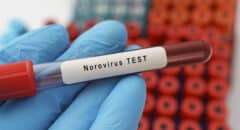
Approximately 75 percent of the African-American population is lactose intolerant. Furthermore, lactose intolerance tends to be more common among Blacks, Asians, Arabs, Hispanics, Native Americans, Jews, Italians, Greeks, according to a 1988 study conducted by the American Journal of Clinical Nutrition.
“Lactose intolerance is caused by a deficiency of lactose enzyme in the intestine. People who are lactose intolerant are lacking in this enzyme or do not have the lactose enzyme in a sufficient quantity. It’s rare for babies to be lactose intolerant. People typically develop lactose intolerance as they get older,” explains Dr. Bola Oyeyipo, a family physician in San Antonio, Texas and co-founder of Healthgist.com.
“All the minority ethnic groups have a higher rate of lactose intolerance compared to Anglo Saxons. There is a genetic predisposition for lactose intolerance which is more pronounced in African Americans. We do not know why this is the case.”
Understanding Lactose Intolerance
There are four types of lactose intolerance: Primary, secondary, congenital, and developmental. Primary lactose intolerance is the most common form and occurs later in a person’s life; secondary lactose intolerance is usually the result of illness injury or surgery to the small intestine; congenital lactose intolerance is when a baby is born with the condition; and developmental lactose intolerance occurs when a baby is premature.
So, how do you know if you’re lactose intolerant?
Some common symptoms include belching, abdominal bloating, stomach cramps, nausea, and diarrhea after consuming dairy products. Less common symptoms include weight loss and constipation.
For the most part, lactose intolerance is pretty harmless and manageable to the point where most people don’t have to completely cut out dairy from their diets. However, those with lactose intolerance should steer clear of large amounts of dairy and stick with lactose-free dairy products.
“Yogurt is fine to consume because it’s cultured,” Dr. Oyeyipo advises. “Probiotics and lactobacillus supplementation may also be helpful to better tolerate dairy products.”
Worried about not getting enough calcium? Don’t be! Calcium can also be found in the following foods: oranges, broccoli, collard greens, kale, sardines, white beans, black-eyed peas, almonds, tofu, and the list goes on.
If you think you might be lactose intolerant, schedule an appointment with your doctor. He or she will run a series of tests (lactose intolerant test, hydrogen breath test, stool acidity test) to find out whether you have lactose intolerance and determine a treatment plan that works best for you.
For more great articles, click here.









